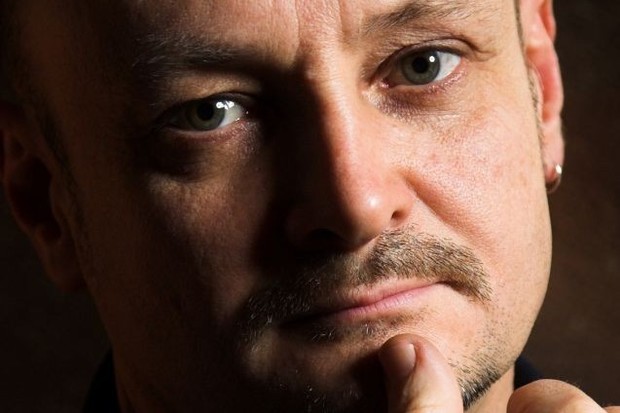Marco Simon Puccioni • Director
"My Armida in the fight for love and justice"
- Distributed in France, Like the Wind is being very well received on the other side of the Alps. Cineuropa met up with the director Marco Simon Puccioni

Distributed in France since 18 June, Like the Wind [+see also:
trailer
interview: Marco Simon Puccioni
film profile] is being very well received on the other side of the Alps. Critics have defined it as "A successful tribute to a strong woman who astounds and moves us". It is certainly one of the most important and convincing displays of Valeria Golino’s talent. "I think that the French public is one of the most open and curious in the world, with different niches that are also interested in Italy and in its stories" director Marco Simon Puccioni reflects with Cineuropa. "In particular, in my film we are struck by Armida Miserere’s life and by her painful journey in the prison world, a world of daily conflicts but also, in Italy, of harsh clashes between the State and organised crime. Our "cousins across the Alps" are relatively well informed of Italian affairs, but they didn’t know about Armida Miserere and Umberto Mormile’s story, which is also not extremely well-known in Italy. However, what makes the story universal and interesting for foreign viewers is the portrait of the woman and of her struggle for love and justice against the harsh and violent backdrop of prison-life especially during the early years of the nineties".
Cineuropa: How did Valeria Golino become involved in the film project and how did you work on the character of Armida?
Marco Simon Puccioni: At the beginning Valeria Golino was reluctant to accept the role. Even though she was attracted to it, because she understood the human aspect, she was afraid of the painful element and she didn’t want to say yes to me. Then, because of my obstinate determination also, she threw herself into the character, body and soul. I made her step into the characters shoes physically and spiritually, keeping in mind that this was a character inspired by a real person and that she should be treated with respect, without making a heroine out of her, but simply humanising her and telling our "truth". She offered her huge talent and I guided her in the inner and outer world of Armida, which I had learned to understand by writing the screenplay (together with Heidrun Schleef and Nicola Lusuardi) and in the many months of research and preparation".
Was it difficult to pull together the production resources for this film?
Today it’s difficult to make any small-medium dimension film, like this film with a budget of more than 2 million. In Europe a mixed public/private financing system has been created which is enviable in some respects, but which leaves the producer and the director with extremely long waiting times. Indeed nowadays to make a film you need to bring together many different sources of financing which means lots of contracts, bureaucracy, waiting times that are multiplied and that puts even the most decisive and determined filmmakers to the test. I think that we need to review the system and try to simplify it so that we don’t lose energy and talent on bureaucratic issues.
What difficulties did you have in distribution?
Distribution means other problems that the filmmaker is faced with once the film is finished. The auteur cinema market is very small, maybe 10-20% of all the available cinemas in Italy, the business in the hands of a few people who work in a quasi monopoly regime, and this really limits cinema access to those who are not part of the network. This system too doesn’t work and if it doesn’t change I imagine it will inexorably self-destruct. Indeed, every year this short-sighted policy means that closures of city centre cinemas that have an auteur audience continue. My film, like many other so-called quality films, has essentially not had the opportunity to meet its audience, despite appreciation from the press and the public and recognition from festivals.
Rather than closing the market we need market openness and innovation and ever greater interaction between cinema theatres and distribution via the web, which does in fact exist with online piracy. Ideologically I’m against piracy, but in these conditions of market closure we find ourselves in the paradoxical situation of having to thank pirates who allow us to overcome market bottlenecks in order to reach a broader audience for our films.
(Translated from Italian)
Did you enjoy reading this article? Please subscribe to our newsletter to receive more stories like this directly in your inbox.















